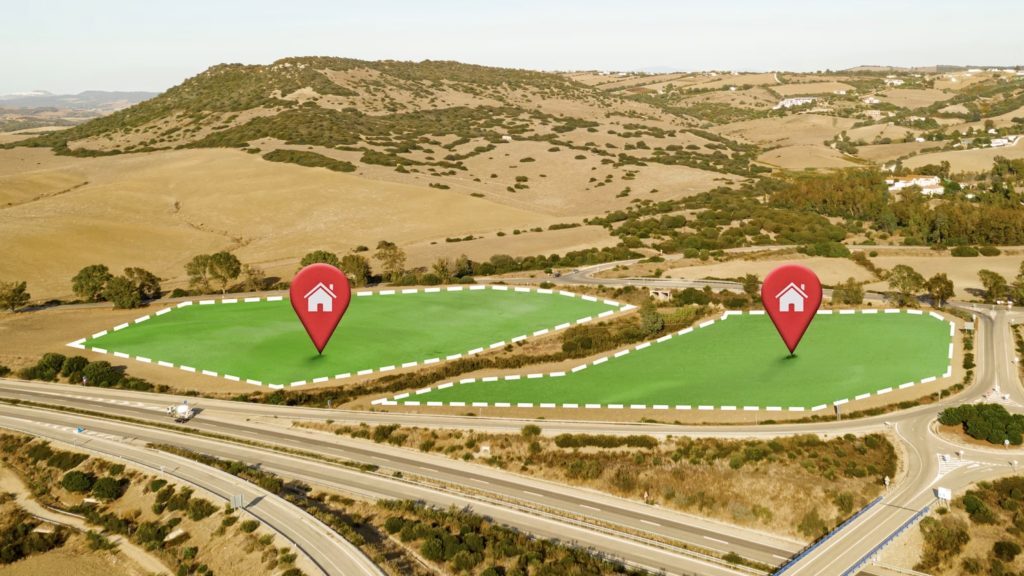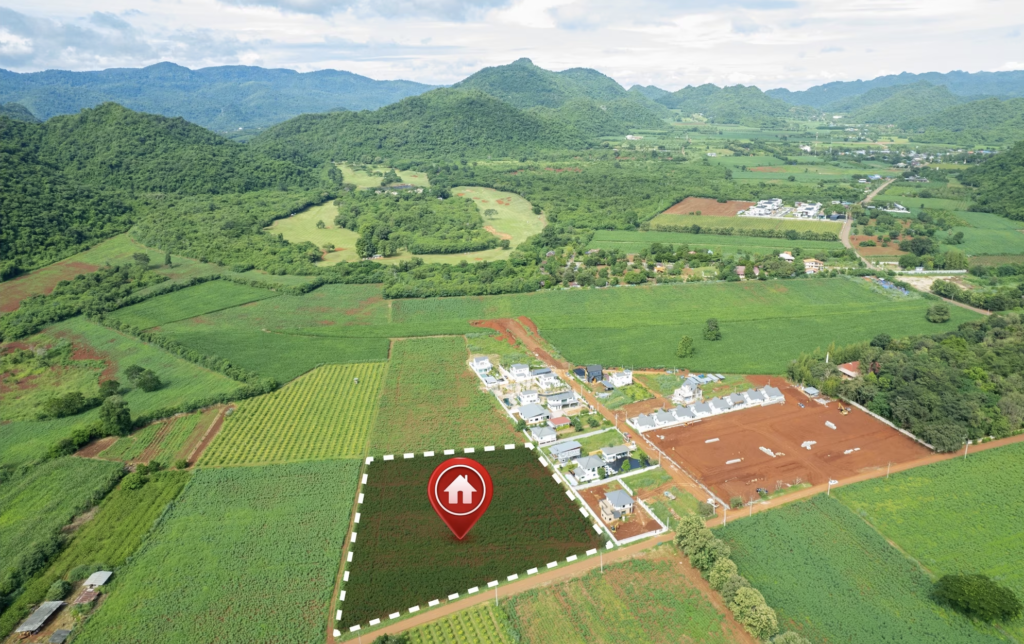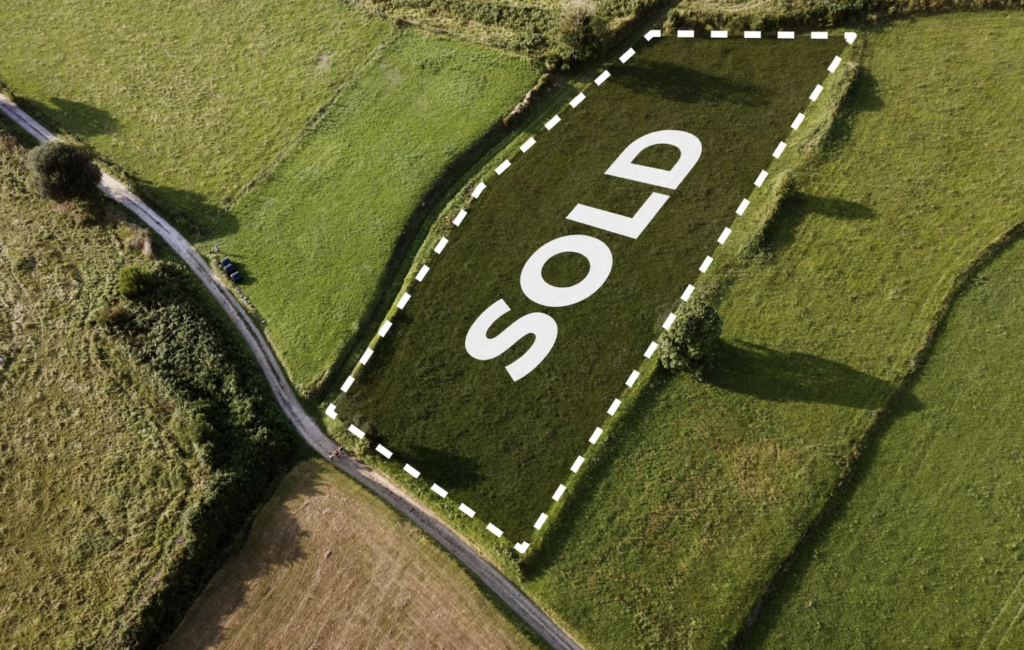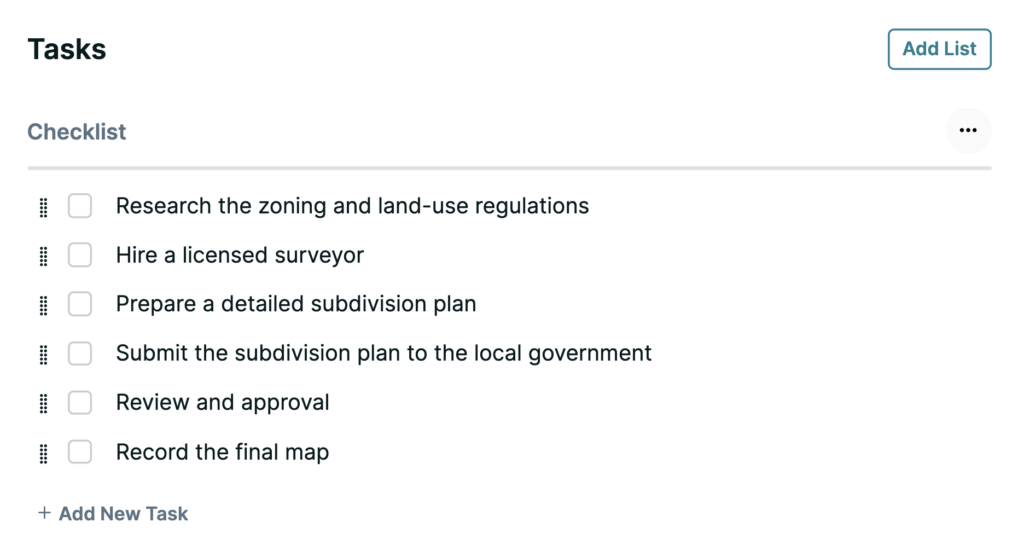
11 May 2023
Forced Appreciation: How to Increase the Value of Land
The value of any piece of land is based, in part, on its potential; on what a buyer can do with the land.
When you create more potential, you create more value.
That’s forced appreciation in a nutshell and unlocking that additional value can be transformative for your land flips, allowing you to go from less than 1x profit on a typical sale to 5x.
Whether it’s creating subdivisions, an entitlements package or rezoning, what you’re really doing is adding certainty and eliminating part of a buyer’s risk.
Doing that homework can be worth a lot.
Does it require more time, effort and upfront cost? Yes, but difficulties along the way can be eased by working with the right pros.
Is it worth it? Only if you’re into bigger potential paydays.
So, let’s dive into the world of forced appreciation.
Entitlements for Land

Entitlements are the first part of any land development process and, simply put, it means getting government approval to use or develop a piece of land in a specific way.
Going through the process, and it can be a lengthy one, to secure these approvals for a developer will set your land apart and increase its value.
Why?
Because you’ve both removed doubt and ensured that the land they’re buying can be developed in a certain way. It’s a sure thing and you have the documents to prove it.
Entitlements can include everything from design to height to the residential density of a development project and access to utilities. If you’re a buyer, think of how much more easily you’d sleep at night knowing those bases have been covered. What would you pay for that peace of mind?
If entitlements sound similar to zoning, it’s because they are, getting entitlements is the step that comes before local zoning ordinances come into play.
Rezoning Land

Speaking of zoning, another way to force appreciation of a parcel of land without physically doing anything to it is to get it rezoned.
The most common rezoning is from agricultural use to residential development. Again, the value added is self-evident, being able to build on a piece of land makes it infinitely more attractive and worthy of investment than a plot of ag land.
Agricultural to residential is just one option for land development. Land can be zoned for commercial, industrial and mixed-use as well. Within each zoning category, it gets more granular too. For instance, you can go from single-family to multi-family too and it’s those subtle changes where value is increased.
Keep in mind, zoning ordinances are developed locally and designed to maintain the integrity of an area, be it to create a consistent look for buildings or control the types of businesses allowed to operate in a given part of town or various other reasons. In other words, they dictate what you can and can’t do and are the reason you don’t end up with a factory in the middle of a subdivision, for example.
Subdividing Land

For most land investors, adding value by subdividing a parcel is the logical next step after you have some deals under your belt and are more comfortable with the process.
The idea is straightforward, buy a larger piece of land then break it down into smaller pieces with the total sale price being higher than just flipping the larger parcel on its own.
Why are the smaller, subdivided plots worth more?
What you could initially sell to one person, you’ve now made available to many and you’ve increased the potential of each individual parcel.
Of course, there’s a big time investment involved in subdivisions with the process taking 3 to 4 months and that’s where the fear factor comes in for many investors. Your money ends up being tied up for longer and if it’s your first rodeo, going into the unknown is always scary.
This is where working with the right professionals comes into play because subdividing isn’t a mystery, it’s really just the process of ticking predetermined boxes.
You don’t need to be the expert, you do need to work with experts though, in this case, that means surveyors, civil engineers and the county. You can start gathering information about what it takes to subdivide before you even purchase the land, i.e., minimum acreage and frontage.
A huge pro tip is to find land in states that have exceptions from the planning process, Mike Marshall and his team at Tolosa Property Group have put together a hugely helpful (and valuable) State by State list of exceptions and qualifying criteria.
Creating a Task List for Adding Value in Pebble
No matter which way you go about creating added value for your land purchase, there are going to be quite a few steps that go into it. Trying to remember everything or jot down notes that you have to keep track of for months is a surefire way to lose track of the process and prolong it even further.
So, what’s the best way to keep tabs of everything and ensure you’re staying the course?
Task lists.
You can build these out from scratch in Pebble and just follow your preset list step-by-step from there. Simple, straightforward and effective.
Here’s what a basic, high level task list for subdividing land might look like:
Include these steps in the graphic:
- Research the zoning and land-use regulations
- Hire a licensed surveyor
- Prepare a detailed subdivision plan
- Submit the subdivision plan to the local government
- Review and approval
- Record the final map

The Big Advantage of Forced Appreciation
You can buy all the way up to retail and still profit.
Being able to add value fundamentally shifts how you approach an investment. Ordinarily, you’re trying to make the lowest acceptable offer so your margin stays respectable on a flip.
When you know you’ll be creating additional value for the eventual buyer, you’re able to make much more competitive offers because your margin grows with the potential value you add.
That means possibly pushing profits into the 5x range.
Investing with an eye toward forced appreciation also requires a different mindset, which takes longer-term vision and a more strategic approach but rest assured, it’s easier than it might seem.
Freedom to work on other parts of your business
Who doesn’t love more time?
With time on the phone cut to dang near zero, you can focus your energies on building your business. Whether that’s research, hiring or working the qualified leads that have made their way to your desk, you’ll have far more time to do it when you’re not concerned with fielding endless calls.
Get off the phone and into your business.
Check out our podcast with Mike Marshall for an even deeper dive.
Discover our latest podcast episodes

11 Apr 2024
Boost Your Call Answer Rate by 95.6% with this ONE change 😲
A wellspring of hard-earned knowledge, Ajay takes us behind the curtain of his business, giving the inside scoop on his exact sales process. From the key metric he and his team focus on to disqualifying leads to…

28 Mar 2024
“Quick Cash Close” is Killing Your Marketing
Starting in real estate at the ripe old age of 21, Dan did his first flips while still in college and got into land shortly thereafter as a way to fund his long-term buy-and-hold strategy. To create…